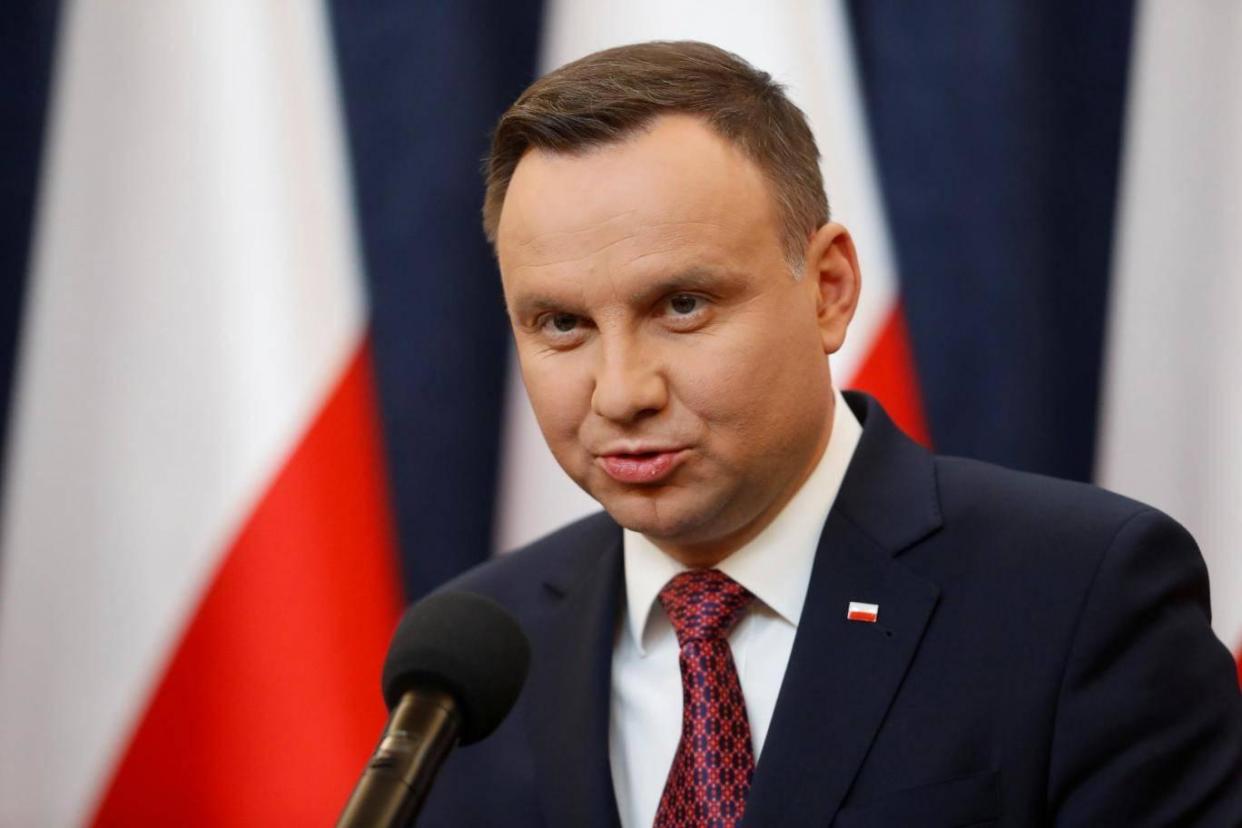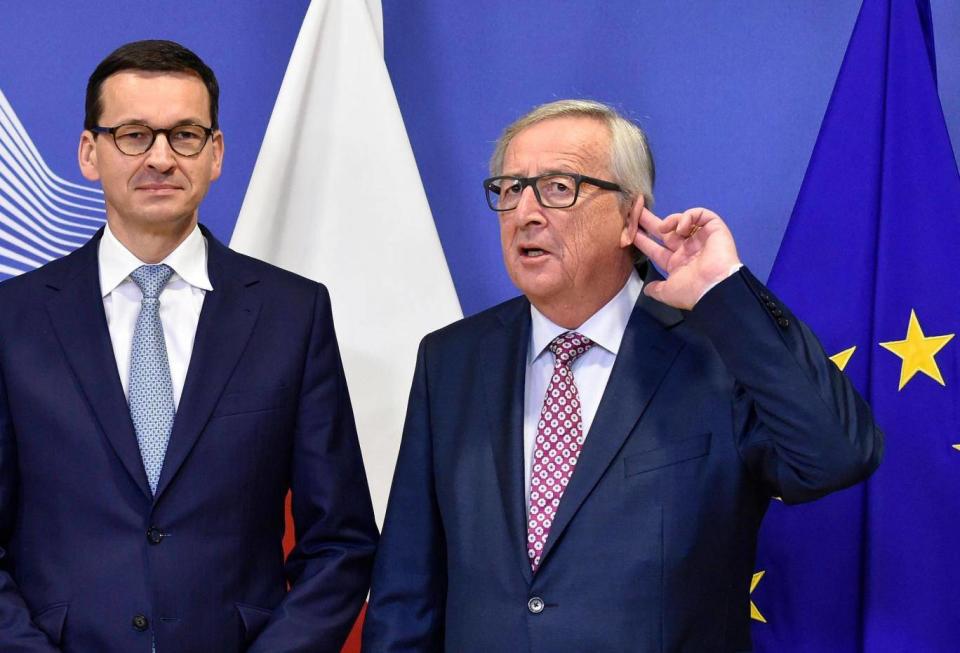EU must not stigmatise and divide its member states, Polish President warns

Poland’s President has warned Brussels to refrain from “stigmatising, dividing and antagonising” EU member states, following a European Commission recommendation to censure the Polish government.
In a speech on Thursday night, Andrzej Duda said the institutions of the EU should be serving the EU member states and not the other way around, suggesting that Brussels' overreach was also partly responsible for Brexit.
Speaking at a New Year reception held for foreign ambassadors at the presidential palace in Warsaw, Mr Duda said the EU institutions held no monopoly on European values – after the Commission warned Poland was undermining the rule of law and independence of the judiciary with new laws.
“Europe is and should be strong with the will of its nations, whereas the community institutions should serve that will,” Mr Duda said.
“If we reverse that hierarchy and place institutions above nations, we will distort the right order of things. A consequence of such an aberration are societies departing from the idea of the common Europe, a phenomenon we could observe in a series of elections in the old EU member states throughout 2017.
“EU institutions should shoulder their part of responsibility for the social disappointment with integration and analyse mistakes they made. Community institutions are tasked with conducing a harmonious European policy, rather than stigmatising, dividing and antagonising European nations.”
He added: “Whoever claims to have a monopoly on defining what Europe is supposed to be, without asking others about their opinions and taking their arguments into account, is a usurper of the European idea”.
The forthright speech comes weeks after the Commission recommended the triggering of Article 7.1 of the European Union treaty against Poland – that would deem Poland to be in violation of European values.
The Commission is concerned about 13 laws passed by the Polish government over the last two years that centralise powers to appoint judges – including those who rule on the validity of election results – in the hands of the country’s government.
“The common pattern of all these legislative changes is that the executive or legislative powers are now set up in such a way that the ruling majority can now systematically interfere with the composition, power, and administration or functioning of these authorities – thereby rendering the independence of the judiciary completely moot,” Frans Timmermans, first Vice President of the Commission said in December.
Mateusz Morawiecki, Poland’s Prime Minister, was in Brussels for talks earlier this week with Commission Jean-Claude Juncker, though there is not yet sign of a thaw. The Commission has given Poland three months – likely until the next European Council meeting – to take back the reforms.

The next step in the Article 7 procedure will be for EU heads of state to consider the Commission’s procedure and to vote on it. This is expected to take place at the March meeting of the European Council, in order for the proposal to pass, a super-majority of four-fifths is required. The European Parliament would also have to support it.
The Article 7.1 motion put forward by the Commission will warn that there “is a clear risk of a serious breach by a Member State of the values” of the EU – which include the rule of law and the independence of the judiciary.
If the breach continues then member states can be asked to vote again, under Article 7.2, to confirm that there is a “serious and persistent breach” – which if passed could see Poland’s voting rights in EU institutions suspended.
However, the second vote would be harder to pass, because it requires the unanimous consent of the other EU member states – and Hungary’s right-wing authoritarian Prime Minister Viktor Orbán has said he would vote against such a move. Mr Orban has also been accused of pursuing anti-democratic reform.

